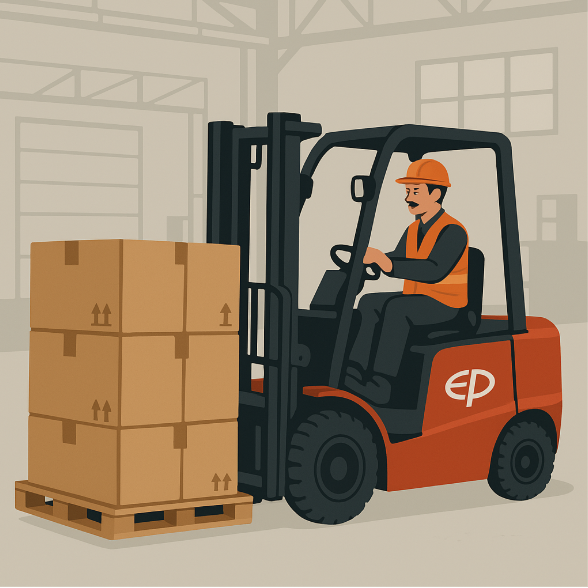Issues a Forklift Operator Cares About
A forklift operator is concerned with various aspects related to their job, safety, work environment, and personal welfare. Below are the common issues they often pay attention to:
🔧 1. Occupational Safety
-
Follow safe forklift operation procedures.
-
Wear full personal protective equipment (helmet, anti-slip shoes, gloves, etc.).
-
Avoid collisions with others or damaging goods.
-
Inspect the forklift before use: brakes, forks, horn, lights, etc.
-
Know how to handle issues when the forklift malfunctions.
📋 2. Licenses and Certificates
-
Have a forklift license or certification (usually issued by training centers).
-
Ensure the certificate is valid.
-
Update skills if needed (electric forklifts, diesel forklifts, high-lift forklifts…).
💼 3. Working Conditions
-
Is the working environment safe and well-ventilated?
-
Is outdoor work involved? (affected by weather).
-
Are there night shifts or overtime?
-
Are rest periods in compliance with labor laws?
💰 4. Salary and Benefits
-
Base salary, overtime pay, allowances (fuel, hazardous work…).
-
Social insurance, health insurance, occupational accident insurance.
-
Holiday bonuses, Tet bonuses, 13th month salary…
📦 5. Workload
-
Is manual lifting required?
-
Is the frequency and weight of lifting too much?
-
Does continuous work cause fatigue?
🛠️ 6. Forklift Maintenance and Quality
-
Is the forklift regularly maintained?
-
Does it often break down, posing a safety risk?
-
Is a personal forklift assigned, or is it shared?
📚 7. Training and Advancement
-
Are there opportunities to learn new skills (different forklifts, warehouse management…)?
-
Is there a career path for promotion to team leader or supervisor?



